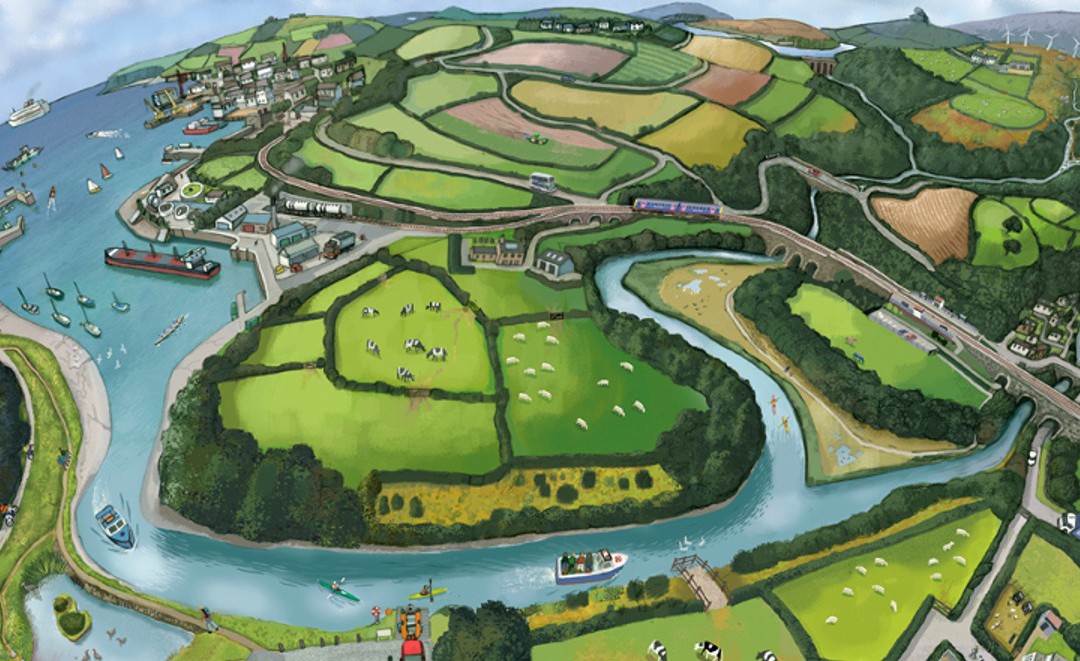Last week (27th March), the Westcountry Rivers Trust hosted the launch meeting of an ambitious new Catchment Management project for the River Tamar, a year-long pilot project funded by Defra. The meeting was attended by representatives of local businesses and farmers, as well as those from conservation organisations, local interest groups and from the public sector, with the aim of developing a more integrated catchment management plan for the Tamar catchment.
The River Tamar and its catchment provides a variety of resources and benefits to all those who live and work within the catchment. It provides a place to grow food and to enjoy recreation. It provides us with water to drink as well as the capacity to store water, providing protection against flood and drought. There are habitats important for rare species and biodiversity within the catchment and some of these also play a significant role in sequestering carbon. However, management of the catchment for delivery of these resources and benefits currently happens in a very fragmented way. The aim of this project is to bring together the relevant stakeholders within the Tamar catchment, to work together in order to identify potential ways in which catchment management could be delivered in a more integrated and cost-effective way.
Nearly 60 delegates attended the launch meeting last Tuesday at Roadford Lakes Country Park and feedback on the day has largely been positive. As the project progresses, the Trust will be assisting stakeholders in identifying and mapping broad areas within the catchment that they consider important. For example, the water company has an interest in the provision of water quality and quantity but only in the parts of the catchment above abstraction points. Likewise, recreational groups may be interested in access to the river but this could be more important near towns and villages than it is in very rural parts of the catchment. The Trust hopes that, through the creation of these maps by stakeholders, areas within the catchment that are important to multiple interests will be identified. It may then be possible to direct funding and management actions to co-deliver outcomes for multiple beneficiaries.
This pilot project is just one of several being funded by Defra in test catchments across the country. The Trust may have set an ambitious program for the year but the success, or otherwise, of these pilot projects has the potential to shape the future of catchment management in the UK. The stakes are high, but we believe that the potential long-term benefits of better catchment management, for both the environment and the people of the Tamar, are well worth the effort of trying.

